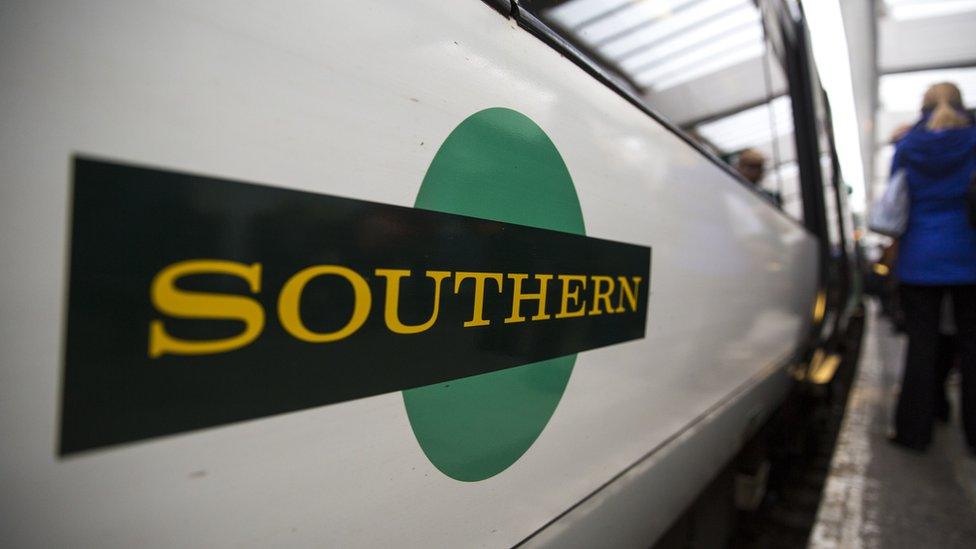Southern rail new year strike enters second day
- Published
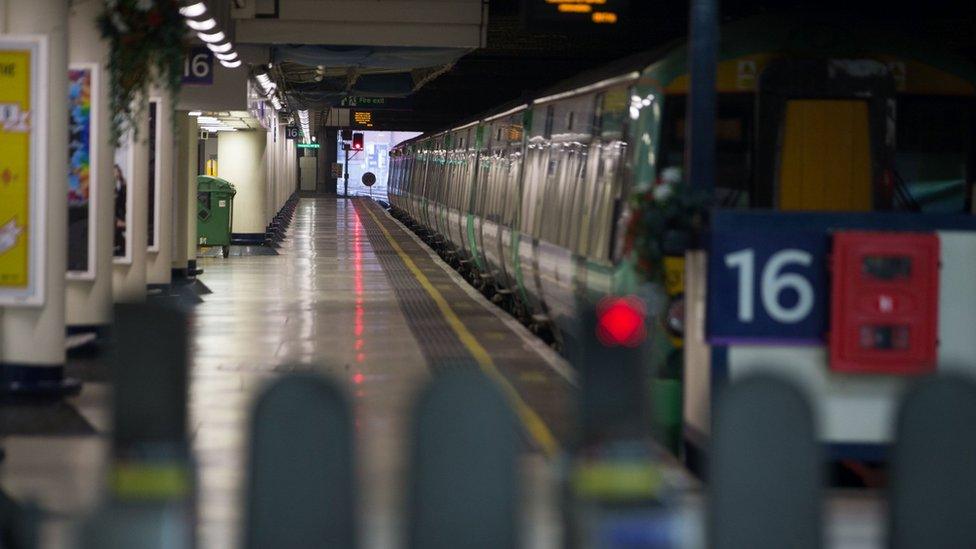
The long-running dispute has seen several months of strikes
A strike by conductors on Southern rail has entered its second day as a long-running row about the role of guards on new trains continues.
The RMT union began the 72-hour walkout on New Year's Eve.
The action prompted warnings of widespread disruption for travellers during new year celebrations.
Southern's parent firm Govia Thameslink (GTR) is in dispute with both the RMT and Aslef unions. Another strike is set for 9 January.
The planned six-day strike involves train drivers from both unions. Most routes are expected to have no services.
The train drivers' union Aslef is continuing with a ban on overtime which is adding to the disruption.
The RMT and GTR have said they are available for talks and Aslef took part in negotiations in December at conciliation service Acas, but discussions ended without a deal.
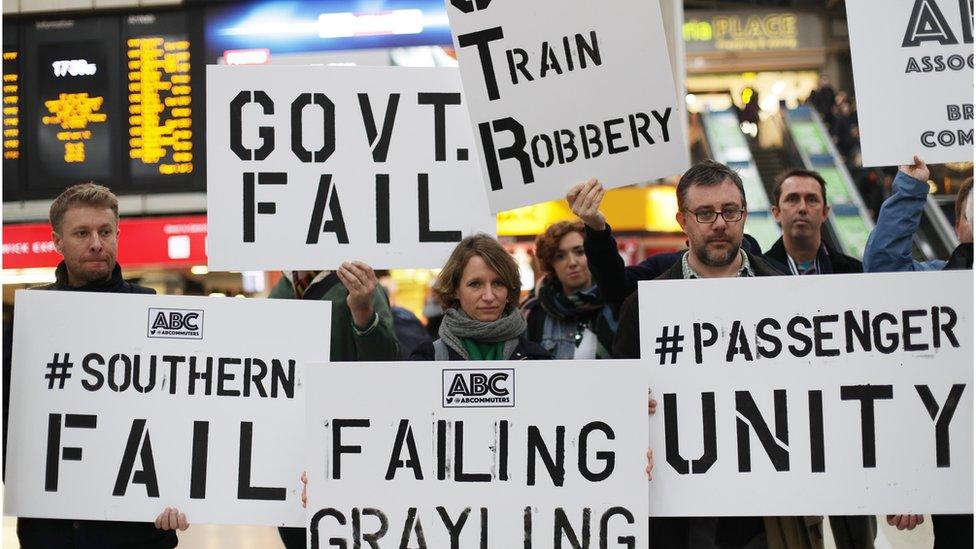
Commuters protested at Victoria during an earlier strike
RMT leader Mick Cash called on Transport Secretary Chris Grayling to make it his new year resolution "to get in a room with the unions and his contractors to sort out the current shambles".
Mr Grayling said it was frustrating the unions had decided to start a new year with the continuation of an old strike.
He said: "We are investing record amounts in improving our railways and we need everyone in the rail industry to work together to deliver for passengers.
"Now the unions need to come back to the negotiating table. Only they can end this misery for rail users."
Southern's deputy chief operating officer Alex Foulds said: "Our door remains open for meaningful talks."
The politics behind the Southern rail dispute
What's the Southern Rail strike about?
How bad have Southern rail services got?
The Association of British Commuters said disruption had caused health problems, forced people to move house and lose jobs.
The campaign group surveyed about 1,000 passengers, external and said the results highlighted the extent of suffering as a result of the "breakdown" of Southern services, with delays, cancellations and overcrowding.
Calling for government intervention, a spokesman said: "Thousands of people are now at breaking point."
The Department for Transport has said the dispute is between Southern and the unions and "not something the government is involved in".
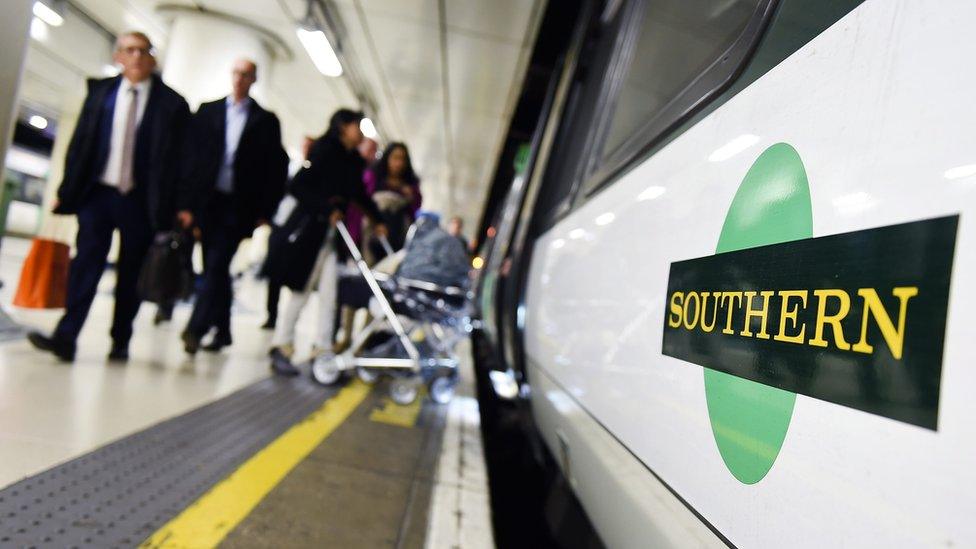
A six-day drivers' strike in January is expected to see no services on most routes
- Published31 December 2016
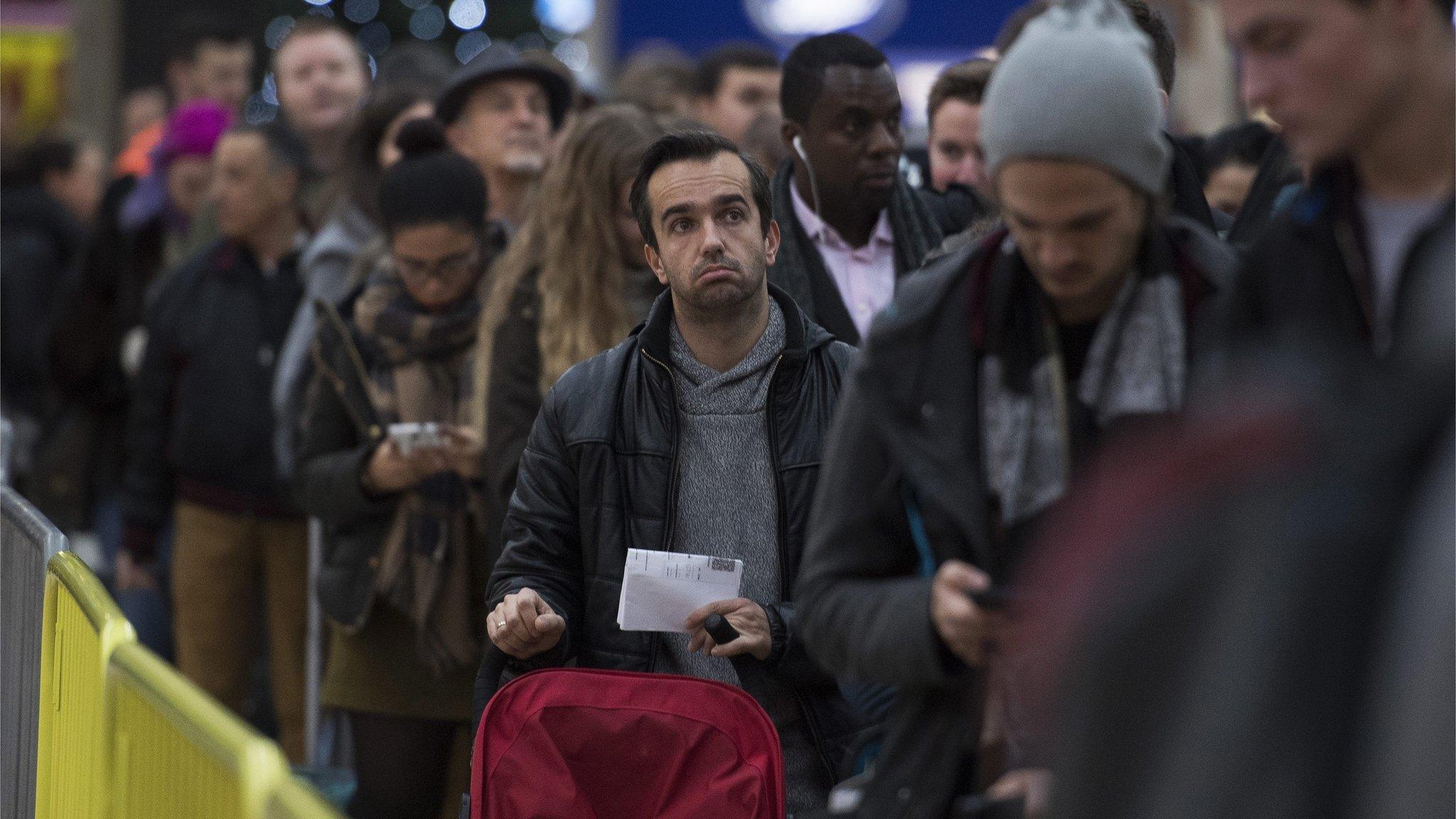
- Published19 January 2017
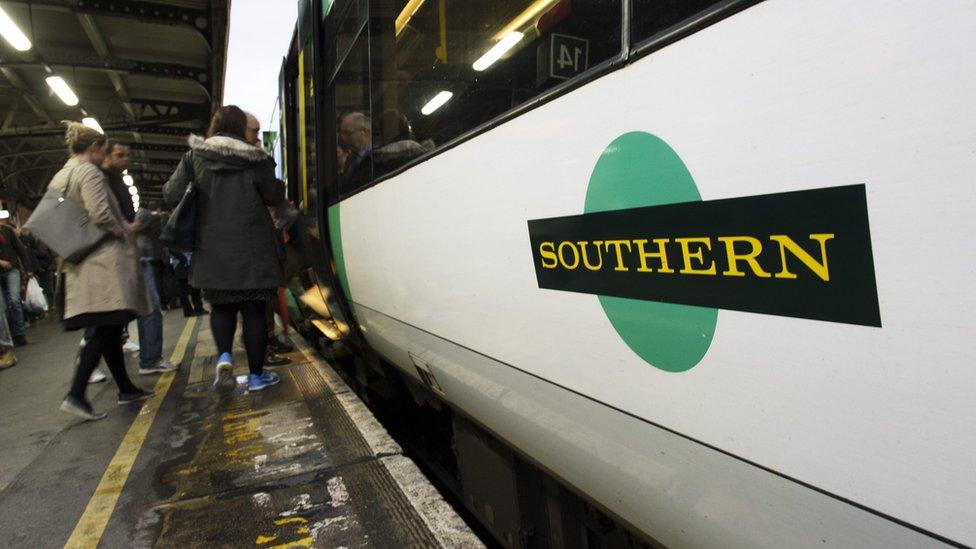
- Published13 December 2016
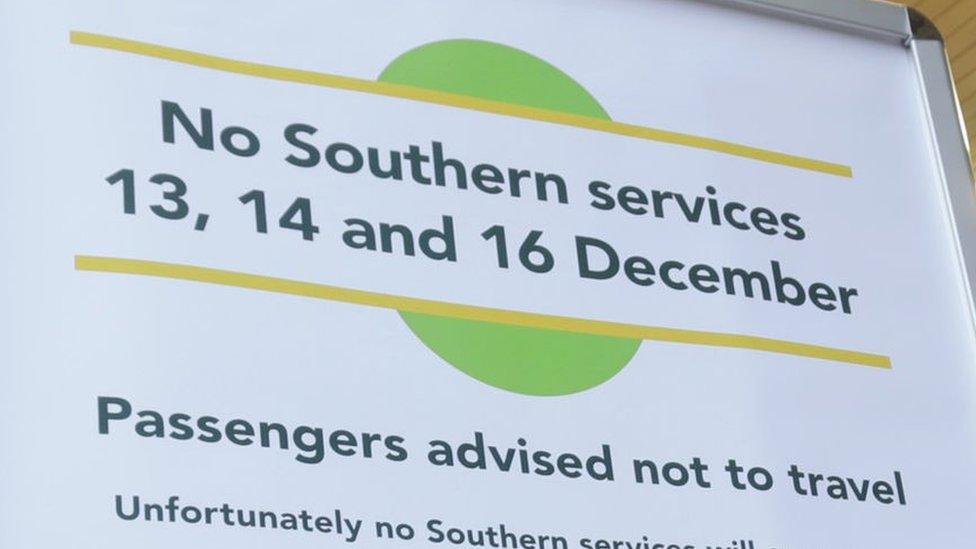
- Published13 December 2016
- Published6 December 2016

- Published2 December 2016
